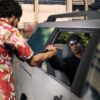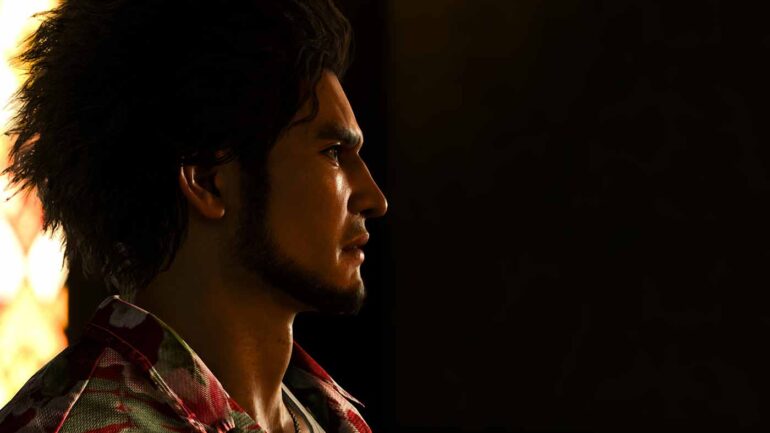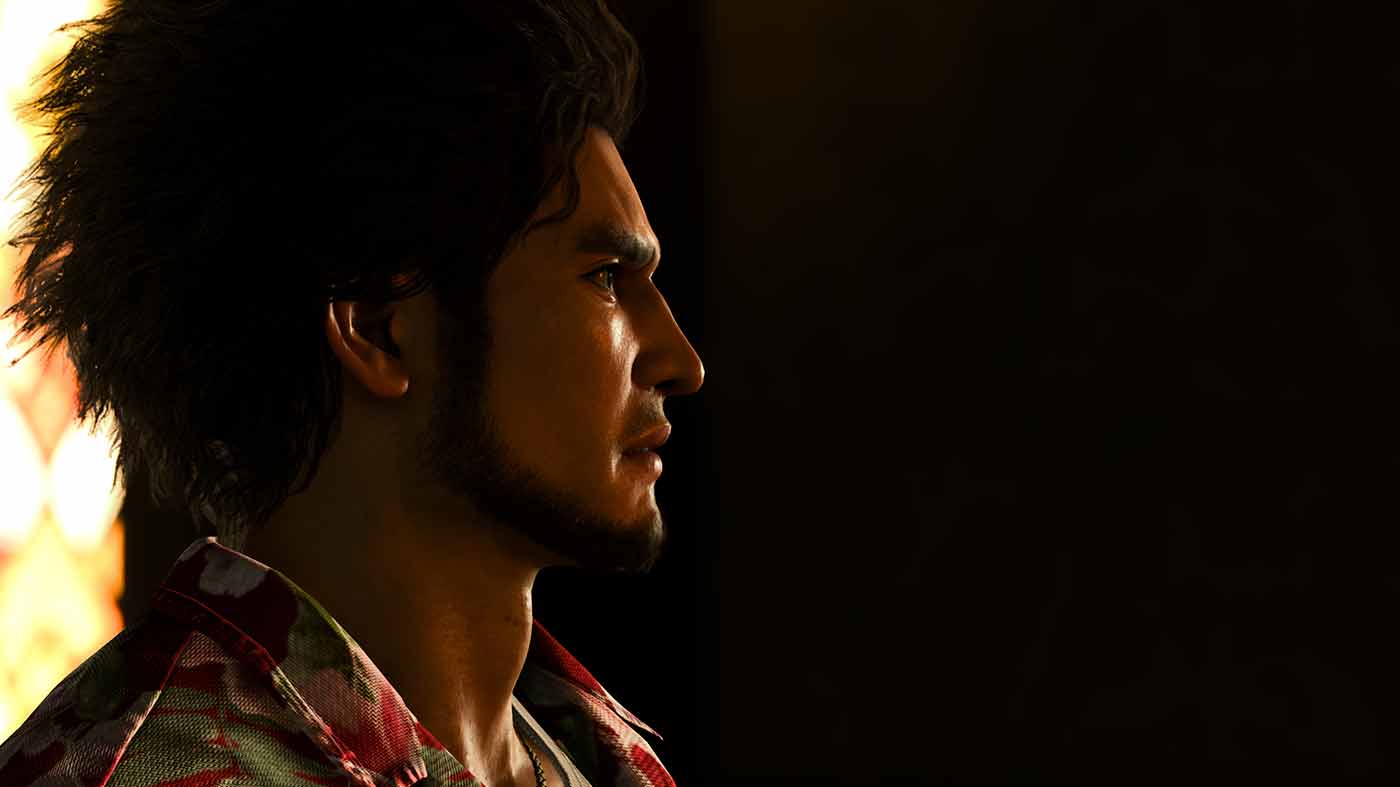Yakuza: Like a Dragon, or Like a Dragon 7 if you’d prefer, was a massive breath of fresh air when it launched in 2020 and brought with it not just a whole new cast of characters and Yokohama’s debut as a playable area but a massive shift in gameplay. Switching from real-time action to a turn-based RPG was certainly a bold move but it worked immensely thanks to strong thematic ties and combat that added depth and strategy but retained (and arguably surpassed) the over-the-top flair of the Kiryu-led titles
Now, after last year’s Like a Dragon: Ishin remake and a brief stint back in the world of beat-em-ups in Like a Dragon Garden: The Man Who Erased His Name, the mainline series is back with both Ichiban Kasuga and Kazuka Kiryu sharing the starring role. Retaining and iterating on the turn-based combat of the previous game, it manages to up the ante once again by introducing yet another entirely new city to explore – one that just so happens to take the party outside of Japan and to the sunny shores of Honolulu. That’s right, we’re going to Hawaii.
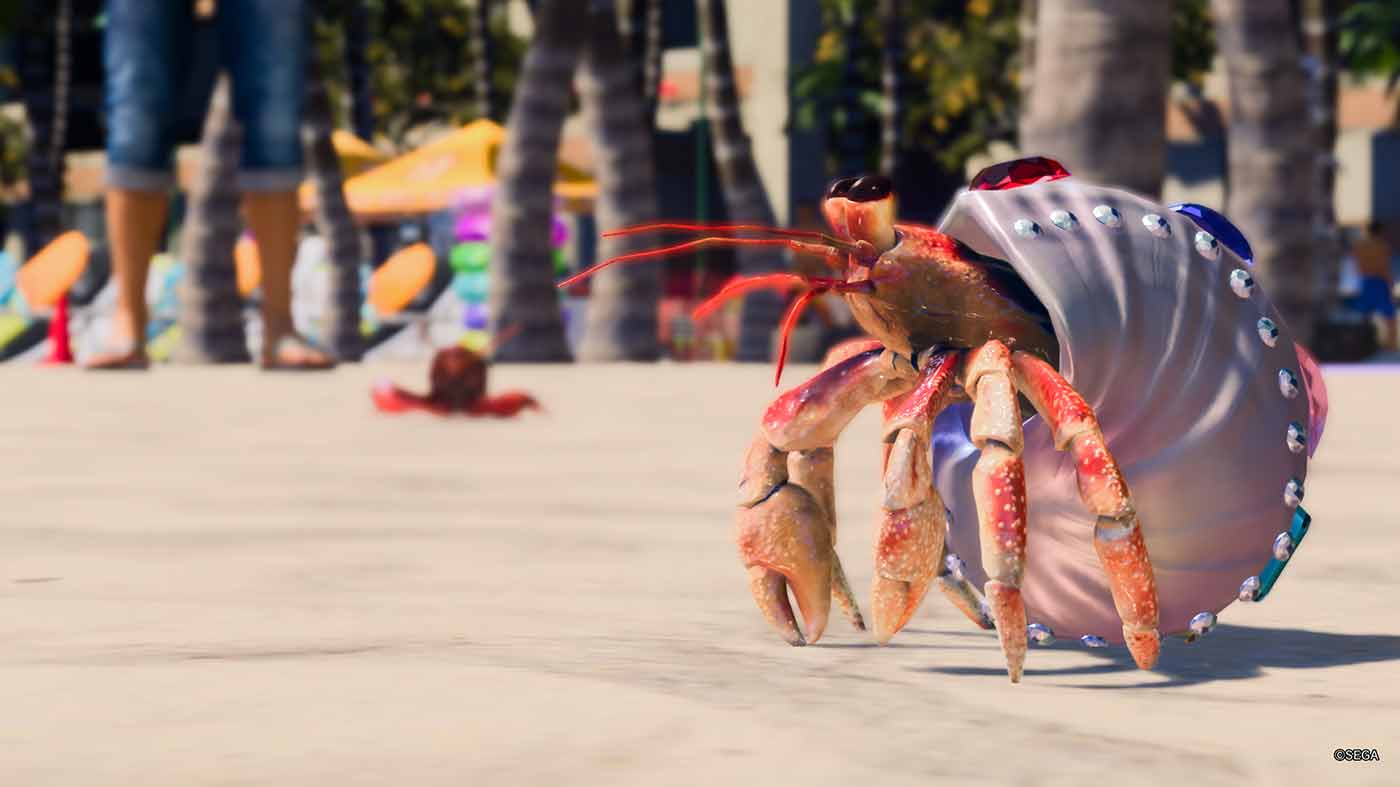
The reason for the international holiday is a big one. Kasuga discovers that his biological mother is alive and likely kicking around Hawaii, and is given the opportunity by an old acquaintance to go and unite with her for the first time. Having just found himself suddenly let go from a new calling finding employment for displaced Yakuza after the events of the last game, he jumps on the opportunity and jets off. Of course, this is a Like a Dragon game and things are never that simple. It doesn’t take long before a series of encounters leads Kasuga to not only form new friendships but new enemies, and by the time Kazuma Kiryu appears on the scene and the threads of a greater plot begin to unravel things quickly go from a simple search to a frantic rescue.
There’s so much to unpack from the events that unfold across Infinite Wealth, and even more I’d be remiss to spoil, but the easiest point to make is that RGG Studio’s storytelling and cinematic flair are in full force once again. Every new character, whether friend or foe, is immensely entertaining – there’s one antagonist in particular that’s going down as a personal favourite in the series – and Kasuga and Kiryu’s continued arcs lean vigorously into what makes each a compelling protagonist. Witnessing the Rock Bottom Dragon continue to pull himself and his friends up from adversity through sheer good-guy-ness is never not inspiring, while watching the Dragon of Dojima come to terms with not being able to fight every battle alone feels like worthy justification of a second go at closure for his character.
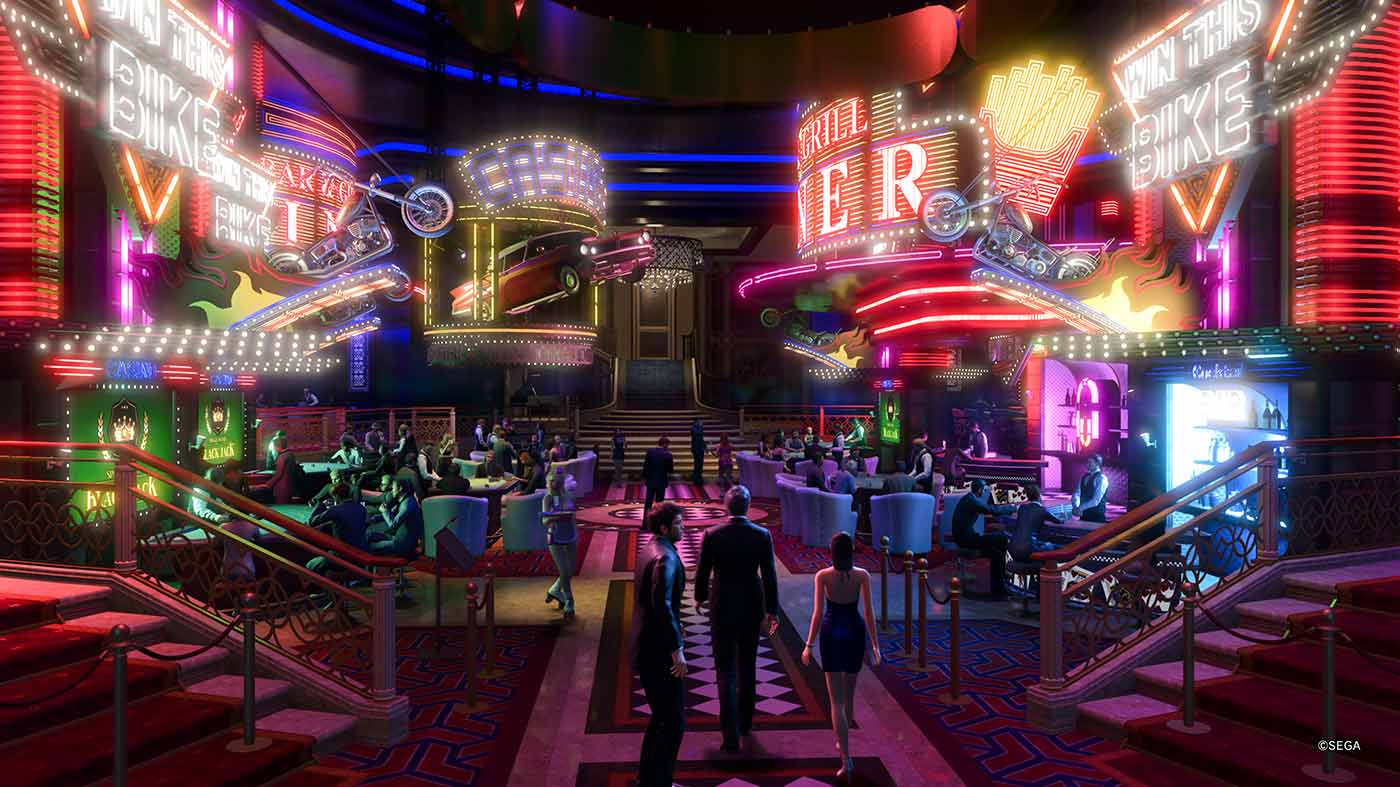
Importantly, the trip to Hawaii makes for a hugely impressive new locale to immerse in. It’s easily the largest explorable location the series has seen to date and without sacrificing the attention to detail and authenticity that’s synonymous with Like a Dragon. From packed beaches to multi-level shopping malls and of course bustling international districts, it feels every bit the virtual tourist destination that one could hope for – I’ve not been to Hawaii myself but the team at Ryu ga Gotoku assures they’ve worked with local agencies, consultants and businesses to craft this version of Honolulu City. It’s also just neat to see these familiar characters interacting in a new and largely unfamiliar location and lends itself to brand-new kinds of stories and gameplay in a series that could have been in danger of overworking its most compelling ideas.
Just the act of getting around feels fun and new, with customisable Segway-style electric scooters at your disposal and even a public trolley available if you’d prefer to take things slow and scenic. Or, should you choose to walk, there’s plenty of opportunity for chatting to your party members, doing literal window shopping for gifts and even waving at the locals with a dedicated greeting button, all in service of making hundreds of new friends and further developing Kasuga’s bonds and personality.
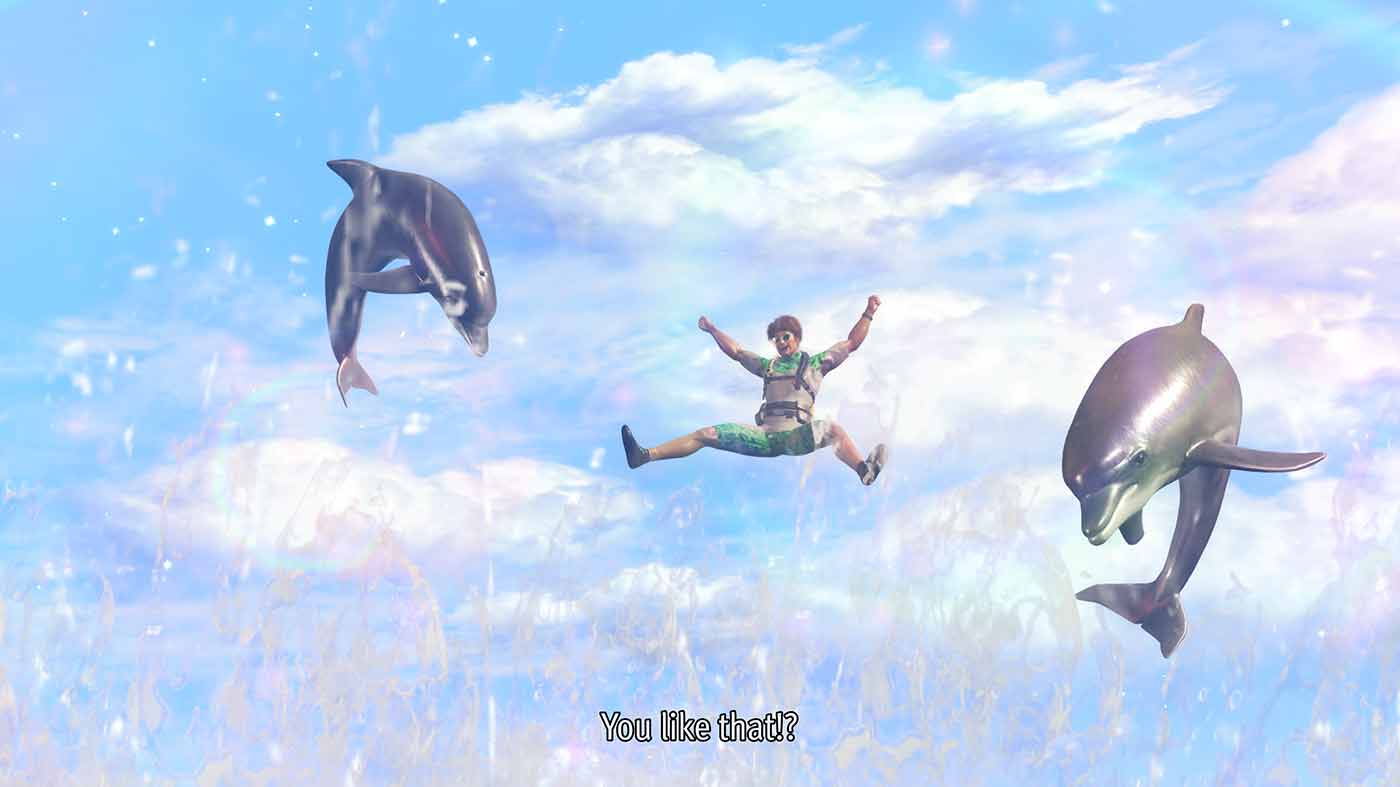
Of course, this wouldn’t be a Like a Dragon game without a veritable shitload of things to do, and Infinite Wealth delivers on that promise across three cities. Kasuga’s exploits in Hawaii bear the most fruit here with all-new and incredibly fun minigames like Crazy Delivery along with a whole-arse Pokemon-like experience that expands on the previous game’s “Sujimon” gag by actually allowing you to capture the hundreds of unique enemies in the game and battle them against each other. And yes, there’s a Sujimon League complete with gyms and a “Discrete Four” to conquer.
The beauty of all of these, as ever, is the way that every bit of optional content you engage with flows into the core combat systems and progression. Mini-games fuel Kasuga or Kiryu’s personal growth to unlock greater combat capabilities, drinking and chatting with your party members boosts their synergy and cooperation in battle, and of course simply making bank and claiming rewards will see you better equipped for the challenges ahead. You’d think that straying from the main objective to goof off would result in a disjointed experience, but it’s absolutely the opposite when the ideas of camaraderie and personal development are just as crucial as the mission ahead.
PRE-ORDER AT AMAZON FOR $99 INCLUDING POSTAGE
And then there’s Dondoko Island, which does break away somewhat from the core of the game to whisk Kasuga away to a dilapidated resort in need of his business acumen and skill with a baseball bat to clear out garbage disposal pirates known as Washbucklers and rebuild the resort’s facilities to attract business. It’s essentially the game’s take on a “cosy” life sim where you’ll spend consecutive days gathering resources, fishing, crafting and chatting with visitors to satisfy a growing number of conditions and secure funding for your resort. It’s honestly kind of janky and ugly, but in a way that only RGG Studio could somehow make compelling. You’ll easily spend hours and hours here just smacking trees and rocks with your bat and erecting cafes and cabaret clubs to satisfy your guests. The great news though is this can absolutely be considered a stand-in for the Ichiban Confections part of the last game, with success in rebuilding Dondoko essily exploited for massive financial gains back in Hawaii.
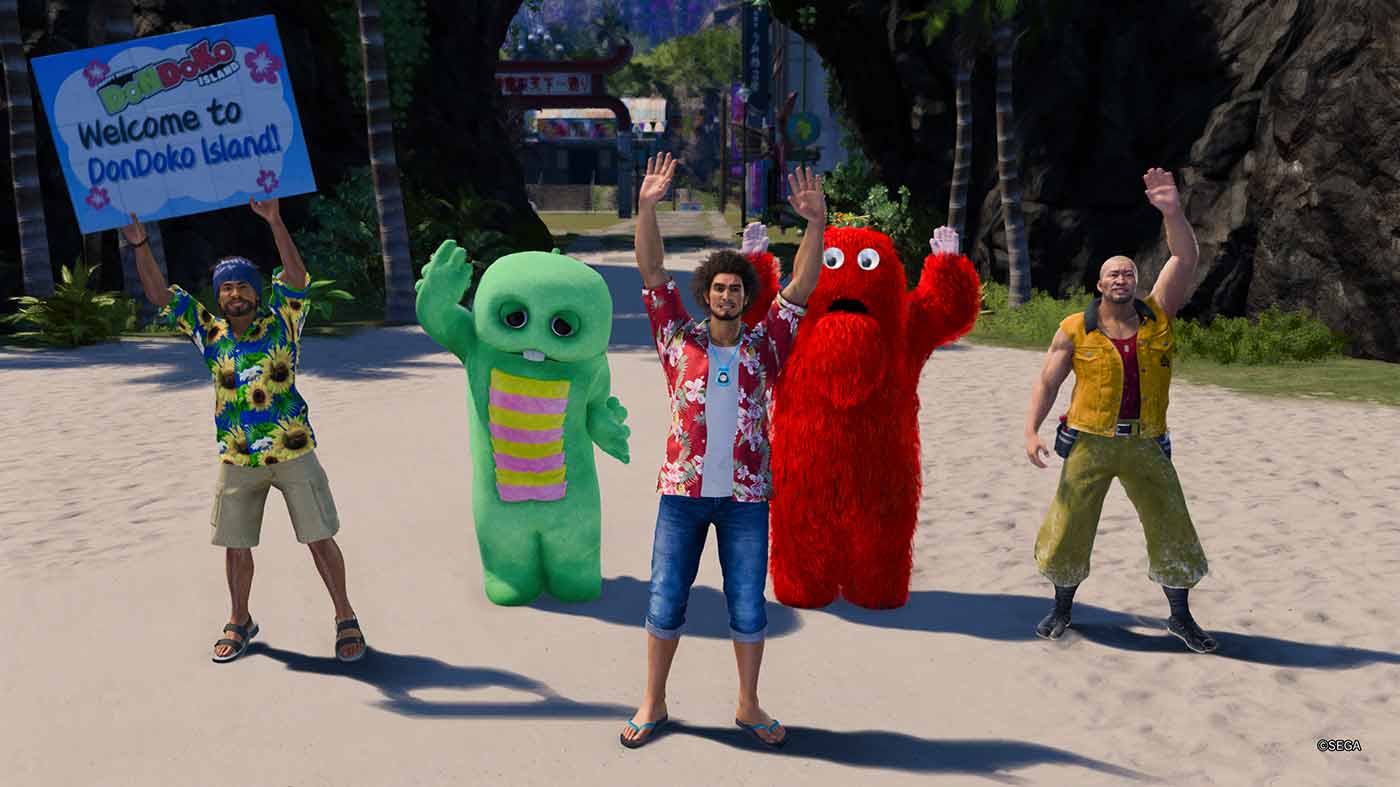
When you’re done living it up on resort islands and going on scenic tours, and it comes time to throw serious hands, you’ll find things are largely similar to the previous game in the combat stakes, at least initially. Where RGG Studio has iterated here is in giving players more control over positioning. Instead of your currently-controlled party member meandering around the battle of their own accord you’ll have the opportunity to guide them around a set area within their turn, before choosing an action. This has the very immediate and very welcome effect of opening up a whole new layer of strategy where your proximity to enemies or allies and the direction you approach them from is incredibly important.
It means that nearby objects to use as weapons or party members to set up chain attacks can be used with purpose, greatly expanding your options while making fights feel a lot more dynamic and engaging. There’s nothing more satisfying than having spent dozens of hours building a bond with your friends outside of battle to then watch them all work together and lay the smack down on enemies as you execute well-placed combo attacks. The same goes for skills that affect certain areas, whether it’s storming a straight line or using an area-of-effect healing attack. Being more in control of where things are happening is a huge boon.
For fans of Kiryu’s earlier, real-time series exploits the great news is that there’s also a little bit of that sprinkled in here with the Dragon of Dojima gaining the ability to switch between three different Heat Styles with their own benefits in battle, as well as active an ultimate move that gives the player a short window of time to directly control him and beat up baddies like the good ol’ days. It’s a neat way to pay homage and makes Kiryu an exciting inclusion in your party.
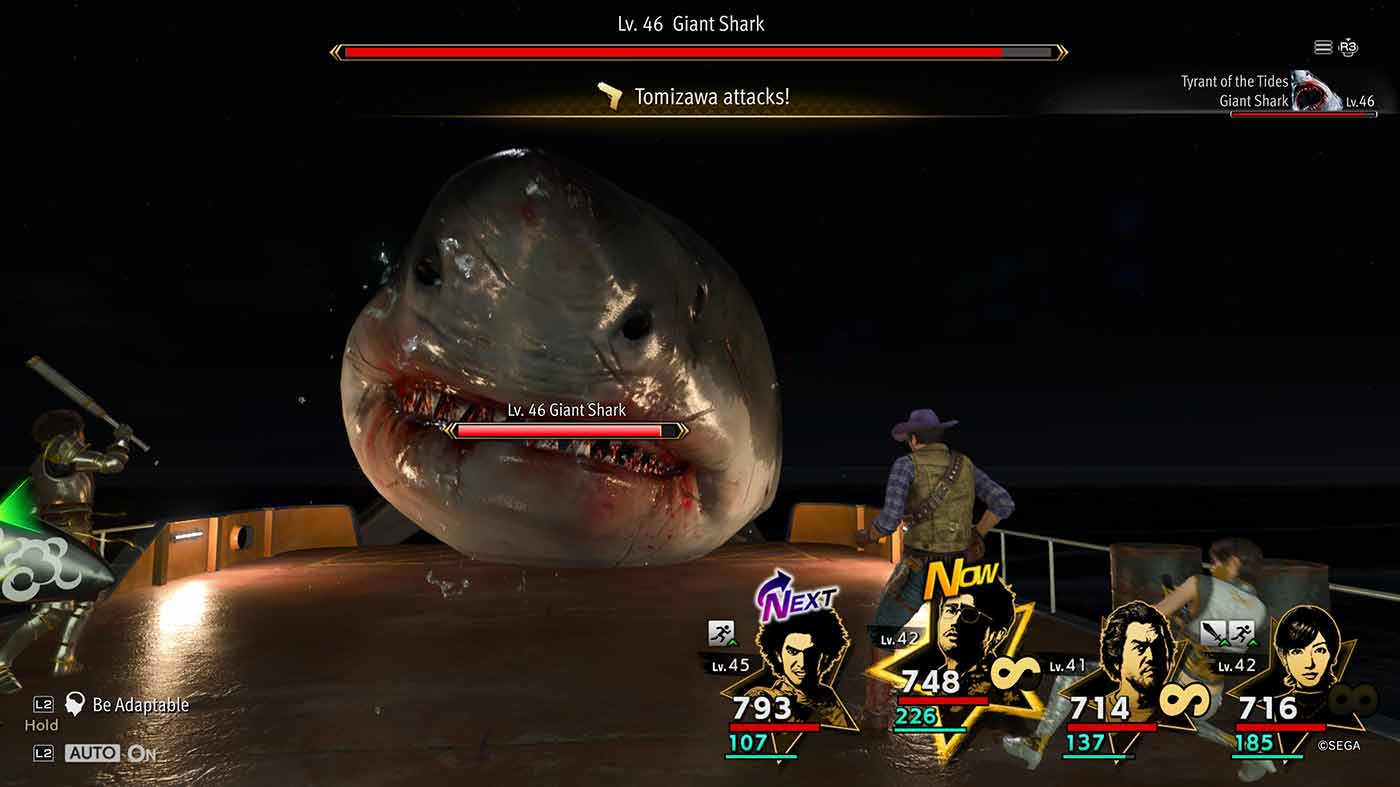
Infinite Wealth is actually a tale of two halves though, with Kiryu breaking off from the pack fairly early to return to Japan’s Isezaki Ijincho and Kamurocho districts in his own distinct chapters. While Kiryu’s portions of the game retain the turn-based combat (amusingly explained as Kasuga’s quirks having rubbed off on him), they strike an overall different tone in both gameplay and storytelling. Faced with his own mortality, Kiryu spends a great deal of the game attempting to reconcile with his past while newfound friends from Kamurocho encourage him to embrace selfishness and work through a bucket list of experiences and encounters.
What this means for the game is that these chapters are far less focussed on silly diversions or lengthy substories and more on Kiryu’s assumed-final tour of a number of familiar locations. Here, you’ll be gradually filling out a collection dubbed “Memoirs of a Dragon” where visiting specific spots or rendezvousing with characters from Kiryu’s past will trigger him to recall moments from previous games both mainline and otherwise. Wandering around Kamurocho and Yokohama to find and activate glowing spots on the ground might not seem like a comparable experience at first to building a resort or becoming a legendary Sujimon trainer, but I very quickly started to appreciate the opportunity to just take in how much history there actually is on these virtual streets and the care and attention that RGG Studio has put in for nearly two decades now.
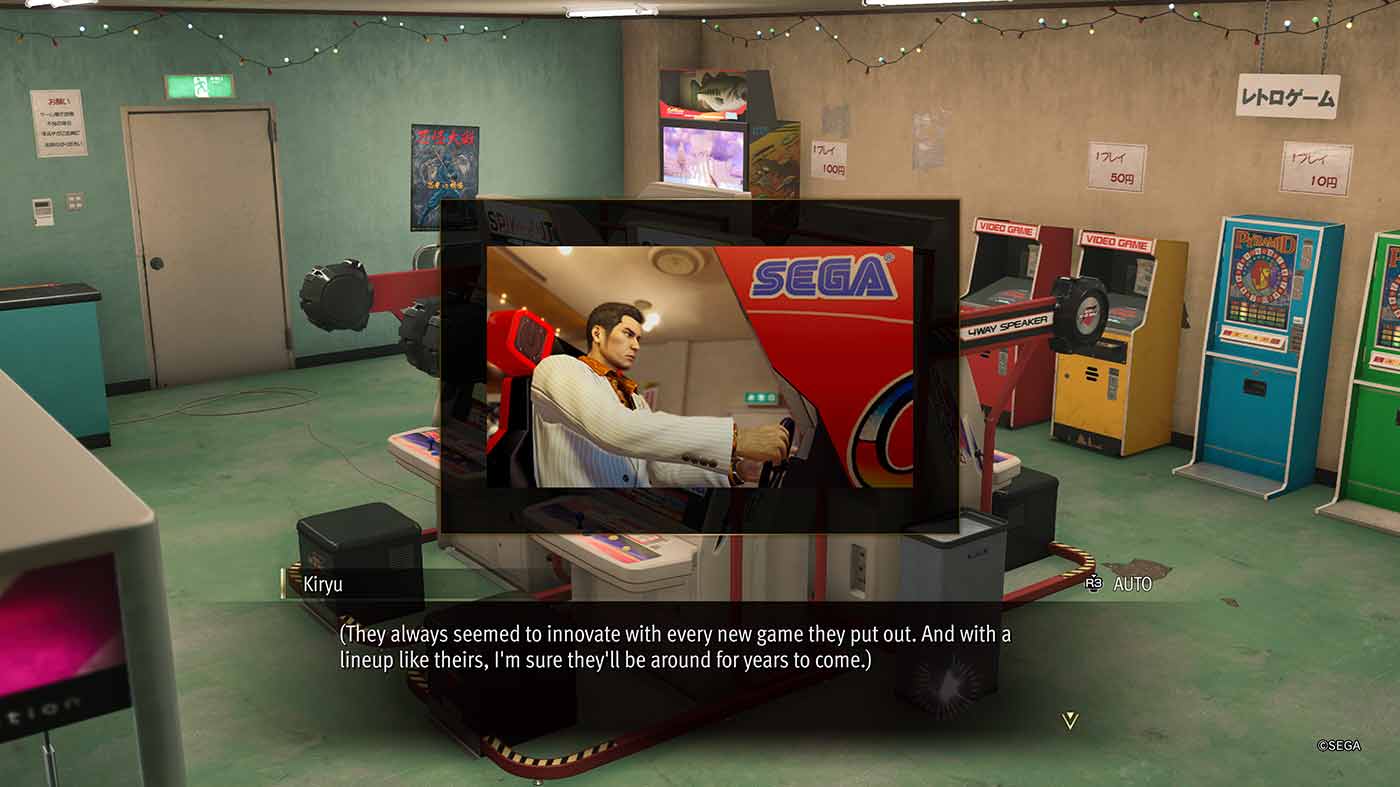
The back half of the game flicks between Kasuga and Kiryu’s sections at a pretty regular pace with each new chapter, but it manages to avoid feeling overly disjointed or jarring in doing so. Items, gear and funds carry across (and automatically convert between yen and USD) and with two distinct parties split across both countries you’ve got plenty of opportunity to mix it up with the Job system. It’s a great narrative device too, switching perspectives when there’s downtime on one side or when new developments have specific impacts at home or abroad. At the end of it all I do think Kiryu feels more like the guest in the story but it’s still a well-executed and impactful means to a proper torch-passing for the two leads.
I really shouldn’t be surprised after so many of these games, but by the closing moments of Infinite Wealth you’ll find that character emotions are running incredibly high, multi-national government conspiracies are being exposed and boss battles have progressed from gang leaders to giant sharks, and all of it makes total sense. That’s the magic of Like a Dragon, after all. Where other games could very well attempt to throw so many creative, richly detailed and tonally diverse elements into the pot, I can’t imagine it ever coming together in quite the sublime way that it does here.
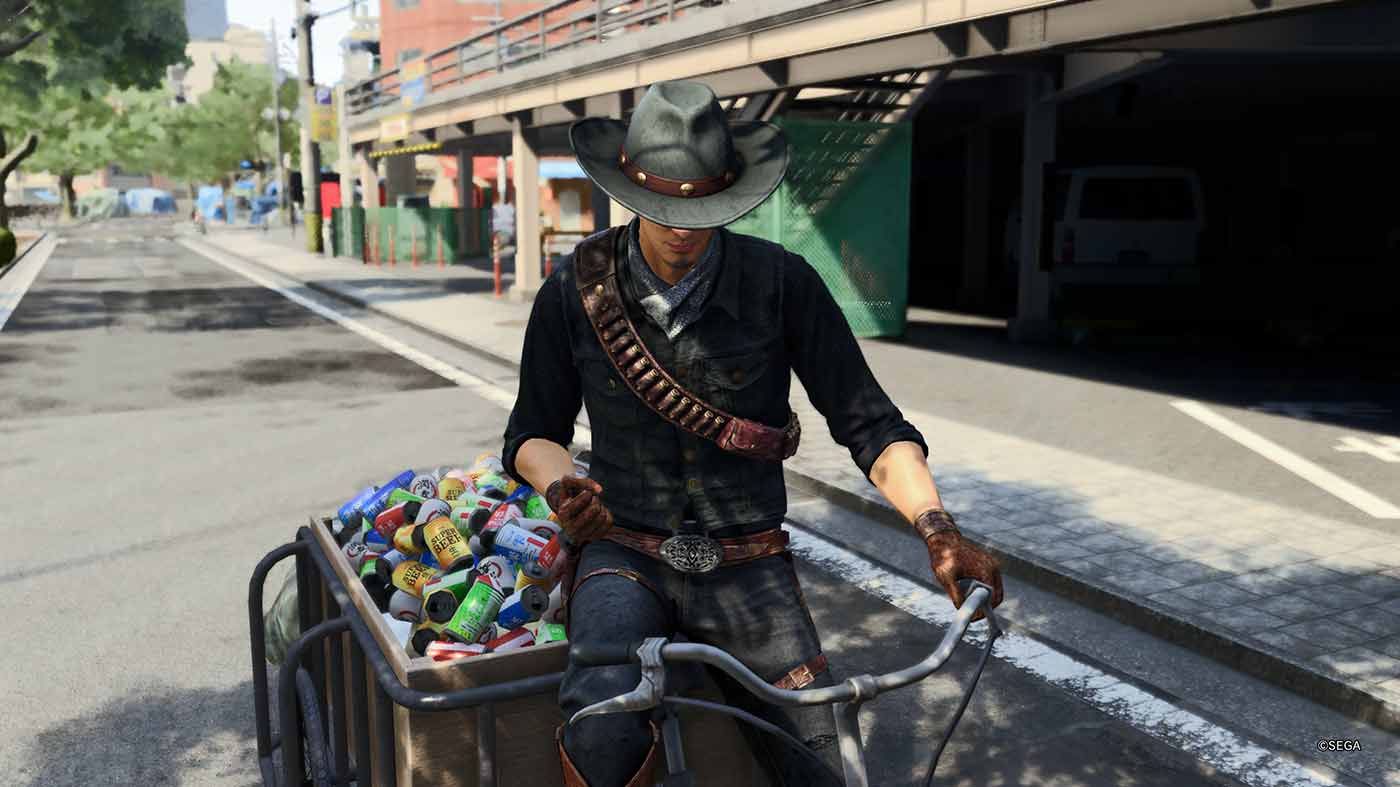
If there’s a notable disappointment, it’s in the game’s pair (or trio, if you’ve forked out for the fancier editions) of optional dungeons. If you played the previous game you’ll be familiar with the Yokohama Underground and Millennium Tower. Neither was particularly awe-inspiring, but the options this time around are somehow worse. With significantly more basic, seemingly-randomised floors made up of cramped, boxy rooms and corridors there’s absolutely nothing going on here mechanically or visually that makes them feel fun – it’s just flinging open doors to find either an enemy encounter, some loot or the path to the next floor down. Thankfully each is only mandatory for a handful of floors, but when you inevitably look toward grinding experience points down the road they’ll be your personal hell for a little while.
The only one that becomes slightly more interesting is The Big Swell, mainly because it comes with some killer boss fights and even some added story bits to break up the monotony. Unfortunately, that one’s locked behind the game’s Deluxe and Ultimate editions. As the only feasible place to encounter truly high-level content, it’s pretty disappointing, as is the decision to lock Infinite Wealth’s New Game+ option behind the same paywall. There’s still a heap of game here besides, but the practice definitely comes off as needlessly grubby.
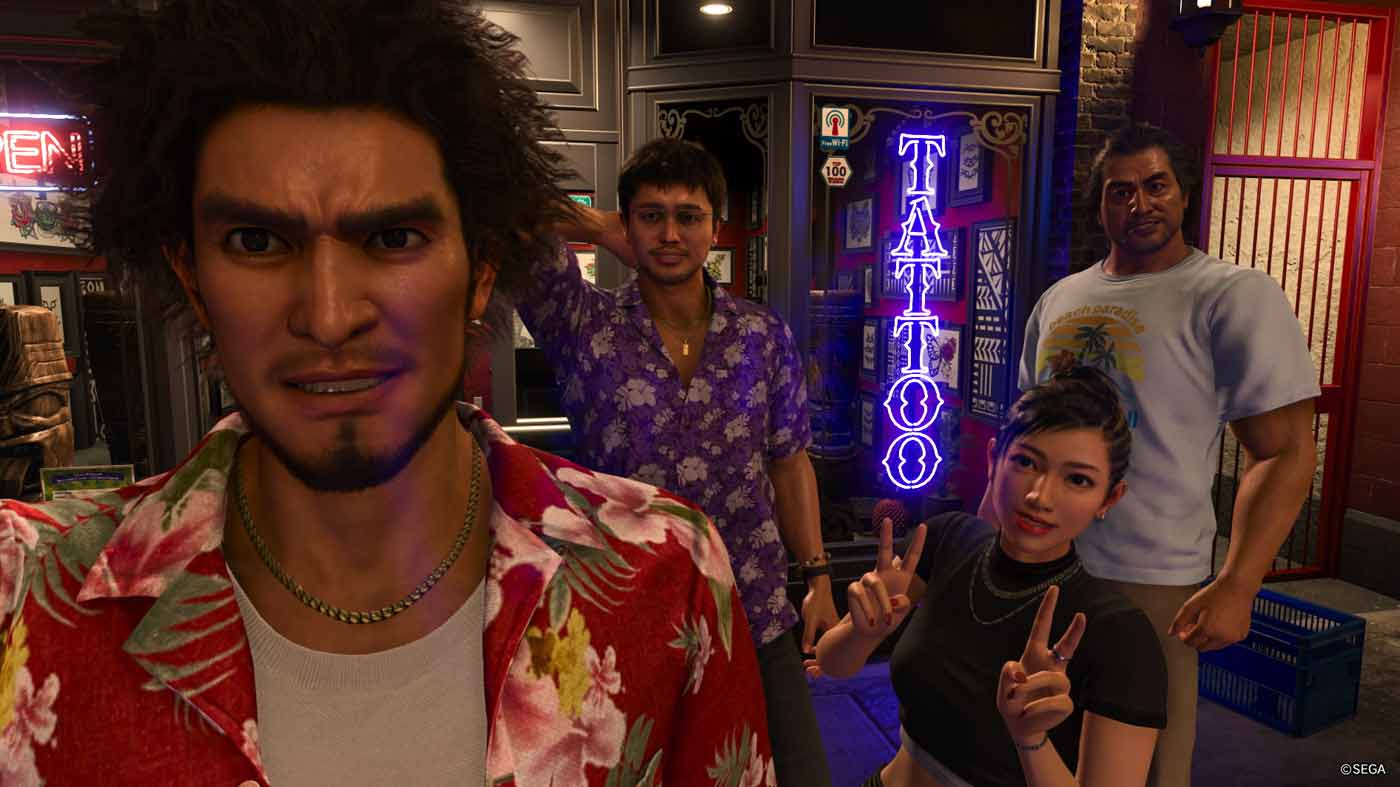
I feel it’s worth mentioning too, that this series continues to cultivate some very positive attitudes and ideas around underserved groups like the unhoused or sex workers, and even some solid dialogue between its main cast around things like gender roles and positive masculinity, which is great. On the flip side, it makes it all the more jarring to still see enemies with titles like ‘Hungry Hungry Homeless” that can poison your party members with alcoholic breath, or others that are depicted as obese and scoff down their giant pizzas shields to power themselves up. I’m not going to suggest that a game where the main characters are a beloved pair of violent mobsters is bound to have its morals completely in check, but it would be nice to be able to appreciate all of the street brawls with just a few less cheap hits.
